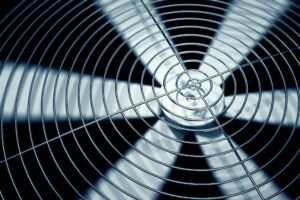Your HVAC system has a fan that helps to push air through the ductwork and out into your home after it is heated or cooled. But what happens when this fan blows too fast? That’s right, there is a just-right speed for your fan to blow, and if it’s too fast that’s a problem.
If your HVAC system has inverter technology, the fan speed may vary based on individual heating and cooling needs at different times of the day. Otherwise, your fan should blow at an average speed. Keep reading to learn more about why it is a bad sign for your HVAC fan to blow too fast. Then give our team a call for air conditioning repair in Galloway, NJ.
Reasons for a Fast-Blowing Fan
First, let’s talk about reasons why your fan may be blowing too fast. If your ductwork is not sized properly for your home, it may impact airflow. If enough cool air is not reaching the walls of your home, then your home will not get as cool as you expect it to. As a result, your thermostat will signal for your air conditioner to continue cooling and your fan may speed up to meet your cooling needs.
It’s also possible that your blower motor is damaged and blowing too fast as a result of a malfunction. Both of these reasons are concerning, because your air conditioner is having to work harder than it should. This can lead to more wear and tear on your fan motor, in addition to a shorter lifespan for your entire HVAC system. And the biggest problem of all is that it can be a difficult problem to pinpoint if you don’t pay attention to your AC.
Impact of a Fan That Blows Too Fast
If your fan blows too fast, it could actually hinder how cool your home is able to get. When cool air blows out in your home too quickly, cooling cycles may be shorter than they really need to be. This can result in increased humidity levels since your cooling cycles don’t last long enough to remove excess moisture from the air. Even if moisture is removed from the air, it isn’t cycling outside of your home. As it sits in your system, the moisture evaporates again and re-enters the air in your home.
Wear and Tear
We already mentioned that your fan working too hard can result in more wear and tear. If your fan wears down too quickly, you may need to replace some of the attached components. But, a fast fan can also put strain on other areas of your HVAC system, causing them to work harder too.
One malfunctioning component isn’t an isolated problem, it’s a problem for your entire AC. But when all of your parts work correctly, they can work together to cool your home efficiently. Otherwise, you are spending more on energy bills for the same results and shortening the lifespan of your HVAC system so that you have to replace it sooner.
Your comfort is our business. Contact the Elliott McElwee team today to schedule your appointment for AC service.

